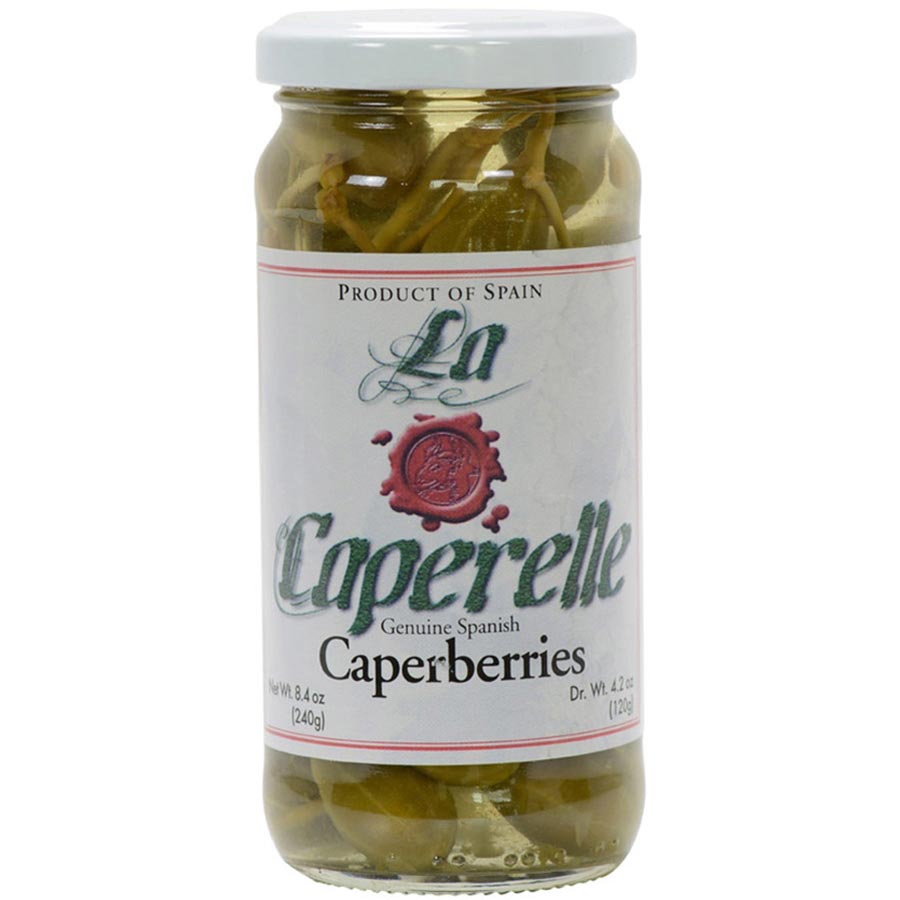
Caperberries Or What You Should Be Nibbling On When In Italy
CAPERBERRY [ISBE] CAPERBERRY - ka'-per-ber-i ('abhiyonah; kapparis; Eccl 12:5 the Revised Version, margin): The translation "the caperberry shall fail" (the Revised Version (British and American) "burst") instead of "desire shall fail" (the King James Version) has the support of the Septuagint and of some Talmudic writers (see G. F. Moore, JBL, X, 55-64), but it is doubtful.

Episode 247 Jared Byas What It Means to Take the Bible Literally
Ecclesiastes 12:5. ESV they are afraid also of what is high, and terrors are in the way; the almond tree blossoms, the grasshopper drags itself along, and desire fails, because man is going to his eternal home, and the mourners go about the streets—. NIV when people are afraid of heights and of dangers in the streets; when the almond tree.

Caperberries
Caperberry: ka'-per-ber-i ('abhiyonah; kapparis; Ec 12:5 the Revised Version, margin): The translation "the caperberry shall fail" (the Revised Version (British and American) "burst") instead of "desire shall fail" (the King James Version) has the support of the Septuagint and of some Talmudic writers (see G. F. Moore, JBL, X, 55-64), but it is doubtful.

Wallpaper With Bible Verses / Bible Verse Desktop Wallpapers
(5) The old man is beset with terrors; terrors from on high, terrors on the way: all in which he had taken delight before, has charms for him no longer; the almond causes loathing (for so may be translated the word rendered "flourished" in our version); the locust, in the East a favourite article of food, is now burdensome; the caper berry (translated "desire" in our version) fails.

Martin Luther King Jr. Jeremiah 20, National Mall, Martin Luther King
CAPERBERRY. ka'-per-ber-i ('abhiyonah; kapparis; Ecclesiastes 12:5 the Revised Version, margin): The translation "the caperberry shall fail" (the Revised Version (British and American) "burst") instead of "desire shall fail" (the King James Version) has the support of the Septuagint and of some Talmudic writers (see G. F. Moore, JBL, X, 55-64), but it is doubtful.
/MosesPartingtheRedSea-166114319-5c5b3ab146e0fb000158731f.jpg)
Moses Parting the Red Sea Bible Story Study Guide
Ecclesiastes 12:5-7New Living Translation. 5 Remember him before you become fearful of falling and worry about danger in the streets; before your hair turns white like an almond tree in bloom, and you drag along without energy like a dying grasshopper, and the caperberry no longer inspires sexual desire. Remember him before you near the grave.

Bible Verses, Scriptures, Kjv, Life, Truths, Psalms, Scripture Verses
Amplified Bible Furthermore, they are afraid of a high place and of dangers on the road; the almond tree (hair) blossoms [white], and the grasshopper (a little thing) is a burden, and the caperberry (desire, appetite) fails. For man goes to his eternal home and the mourners go about the streets and market places. Christian Standard Bible

Cape Weaver (Ploceus capensis) male Jamaka, Cederberg Moun… Flickr
The caperberry is the fruit of the thorny caper, Capparis spinosa (Natural Order Capparidaceae ), a common Palestine plant with pretty white flowers and brightly colored stamens. Largely on account of its habit of growing out of crevasses in old walls it has been identified by some with the HYSSOP (which see).

Capparis spinosa (flowers, capers, stem leaves). Download Scientific
NAS: drags himself along, and the caperberry is ineffective. KJV: shall be a burden, and desire shall fail: INT: the grasshopper is ineffective and the caperberry for goes. 1 Occurrence Strong's Hebrew 35 1 Occurrence hā·'ă·ḇî·yō·w·nāh — 1 Occ.

The Bible Tells Me So
CAPERBERRY, CAPER-BERRY, a low trailing shrub found throughout the Mediterranean coastal region. The flower bud has been used since antiquity as a spice, and many classical authors indicate that the berry or small white blossom was commonly used as an aphrodisiac and a condiment. The plant is identified as Capparis spinosa and is known in.

biblejournaling journalingbible Bible Study Journal, Scripture
When you explore the rich tapestry of the Bible, you'll find the caperberry mentioned in Ecclesiastes 12:5, symbolizing the waning of desire in old age. This intriguing reference not only highlights the plant's historical and cultural significance but also opens a window into the symbolic language of biblical texts.

Livingstone Bible Baptist Church Teresa
Remember Your Creator. 5 when men fear the heights and dangers of the road, when the almond tree blossoms, the grasshopper loses its spring, and the caper berry shrivels—for then man goes to his eternal home and mourners walk the streets. 6 Remember Him before the silver cord is snapped and the golden bowl is crushed, before the pitcher is shattered at the spring and the wheel is broken.

What the Bible’s approach to history can teach us about America’s glory
Remember God in Your Youth. 1 Remember also your Creator in the days of your youth, before the evil days come and the years draw near when you will say, "I have no delight in them"; 2 before the sun and the light, the moon and the stars are darkened, and clouds return after the rain; 3 in the day that the watchmen of the house tremble, and.

Redeemer Bible Church Elk Grove CA
Picture Study Bible - StudyBible with Pictures and Maps. The Incredible Bible - First in the BKA Series. The History of Rome - Brief Overview Of Roman History from Her Dawn to the First Punic War. The Tabernacle of Ancient Israel - Brief Overview of the Tabernacle of Moses in the Wilderness and the Ark of the Covenant.

Bible Free Stock Photo Public Domain Pictures
The caperberry is the fruit of the thorny caper, Capparis spinosa (Natural Order Capparidaceae ), a common Palestine plant with pretty white flowers and brightly colored stamens. Largely on account of its habit of growing out of crevasses in old walls it has been identified by some with the HYSSOP (which see).

Proverbs 81217 GraceAndWorks
CAPERBERRY. ka'-per-ber-i ('abhiyonah; kapparis; Ecclesiastes 12:5 the Revised Version, margin): The translation "the caperberry shall fail" (the Revised Version (British and American) "burst") instead of "desire shall fail" (the King James Version) has the support of the Septuagint and of some Talmudic writers (see G. F. Moore, JBL, X, 55-64), but it is doubtful.